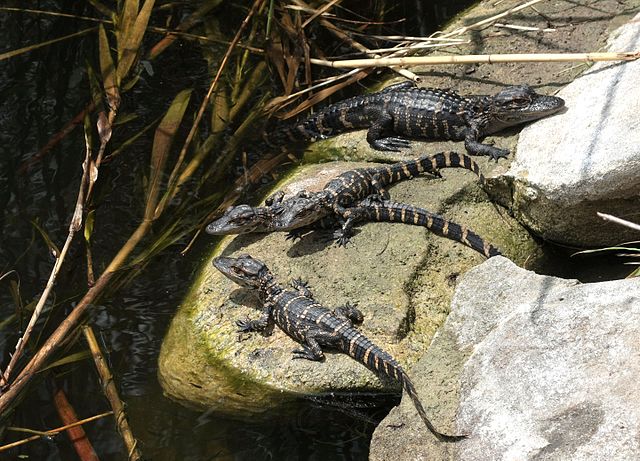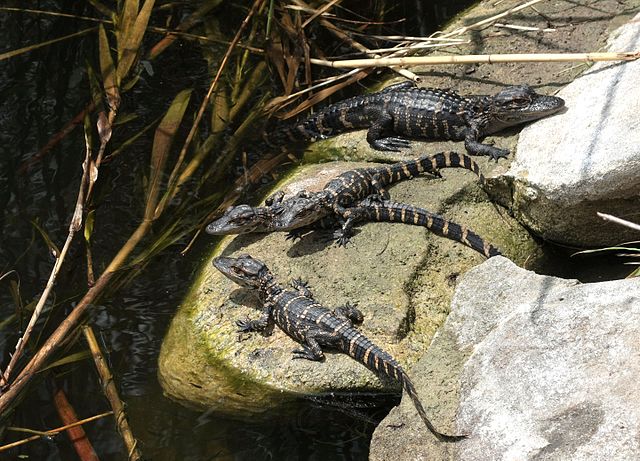The ordinance should make it safer for residents and the reptiles.
If you live in the city of Pittsburgh and you keep venomous reptiles or alligators, you will now have to register the reptiles with the city and keep them in escape proof enclosures, and identify you keep “regulated reptiles” with a sign outside your residence or place of business. The reptiles must be kept in a room with no cracks or means of escape.

Ianaré Sévi/Wikipedia
These juvenile American alligators may be cute now, but they will grow to massive sizes. These are for expert keepers only who have a large enough space for these reptiles to roam and stretch out.
The new ordinance, proposed by City Councilwoman Darlene Harris passed on an 8-1 vote, with council president Bruce Kraus voting against it, saying he was not certain that it met certain requirements. The ordinance affects those who own alligators, crocodiles and venomous snakes, including vipers, cobras, rattlesnakes and copperheads.
Top 10 Venomous North American Snakes
“I’ve heard concerns from many,” Harris told the Post-Gazette . “I started this last year because I thought it was necessary that people know what animals their neighbors have. This doesn’t apply to someone’s little turtle or salamander.”
Those who violate the ordinance face fines of up to $300 per reptile for the first offense and $1,000 for subsequent offenses. If the animals are found in unsafe conditions, owners may lose their pets via seizure. Five escaped or released alligators have been found in or near the city in the last several months.
“I think it’s necessary now,” Harris said. “It’s for the protection of people and reptiles, and that they [animals] have enough movement in whatever they’re keeping them in and also that they will be contained and not get out.



